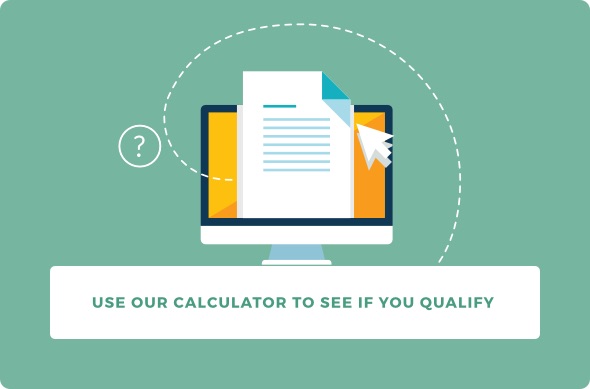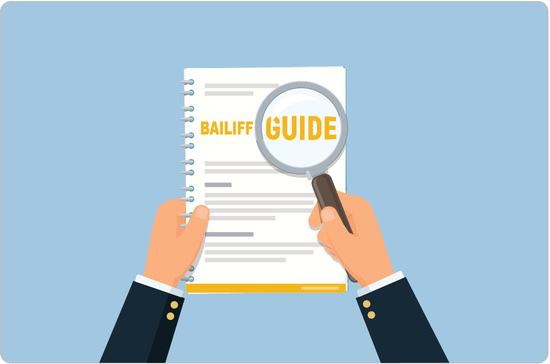May not be suitable in all circumstances. Fees apply. Your credit rating may be affected.
Free debt counselling, debt adjusting and providing of credit information services is available to customers by contacting MoneyHelper.

What is a Scottish Trust Deed?
A Trust Deed in Scotland is a formal agreement between you and the people you owe money to (creditors). If approved for this Scottish debt solution, you may be able to write off part of the debt you can’t afford to repay and repay the rest of the debt at an affordable rate to you, over a typical period of 48-60 months.
Debt Solutions such as Trust Deeds and the Debt Arrangement Scheme are designed to give you legal protection from your creditors and freeze the interest and charges on what you owe. You will turn all your unsecured debts into a single monthly repayment once your Trust Deed has been Protected.
A Trust Deed in Scotland is designed for people who have taken out too much debt and are struggling to meet their monthly repayments. Typically repaid over a period of 4 years, when finished, any leftover money owed is written off.
A Trust Deed can be set up by a Scottish Debt Expert known as an Insolvency Practitioner (IP). The IP acts as the Trustee for the Scottish Trust Deed.
Find out more about how a Scottish Trust Deed works below!
Debt Help In Scotland
Scottish Trust Deed provide tailored debt advice on all available debt solutions in Scotland. We make sure that our customers get personalised debt advice based on their affordability, lifestyle and needs.
Check If You Qualify For Scottish Debt Help
Don’t feel alone in debt
 70% of Unaffordable Debt Written Off*
70% of Unaffordable Debt Written Off*
Formal Debt Soluton Example
Here is an example of how a debt solution could make life more affordable for you.
Example Unsecured Debts
| 1 | Personal loan | £8,000 |
| 2 | Credit card 1 | £6,812 |
| 3 | Council Tax | £4,092 |
| 4 | HMRC Debts | £5,399 |
| 4 | Over payments | £5,200 |
| 4 | Overdraft | £700 |
| Total Owed | £30,204 | |
Your Monthly Repayments Could Be
£748p/m
£295p/m
60%
*Subject to creditor acceptance. Payment subject to individual circumstances. Fees apply. Credit rating may be affected.
For more information on this see ad terms for info
Do I Qualify For Scottish Trust Deeds?
To qualify for a Trust Deed in Scotland you must meet the following criteria:
- You live in Scotland.
- You have debts of £5,000 or more.
- You can make monthly repayments towards the Trust Deed.
- You are insolvent (you are unable to pay your debts as they fall due and/or your liabilities are greater than your assets).


How to apply for a Scottish Trust Deed
It’s never easy to admit you need help repaying debt. We make it as easy as possible. Here’s how:
- Apply for a Trust Deed today online or give us a call on 0141 456 0430 and one of our experienced debt advisers will call you back at a time requested by you.
- The debt adviser will assess your financial position and advise you of the options available to you.
- If you are suitable for a Trust Deed or another formal debt solution and choose to go ahead with it, you will be asked to sign the relevant documents after being given time to fully consider your decision. You should always feel suitably informed of your
- Alternatively, you can now also get Scottish debt advice over WhatsApp and LiveChat if you are unable to do this over the phone or in person.
How much does it cost to set up a Trust Deed in Scotland?
Our initial Scottish debt advice is free and there is no cost if you change your mind after having discussed your option with an experienced debt adviser.
Should you choose to enter into a Trust Deed or the Debt Arrangement Scheme (DAS) with us, then there will be a fee for our services.
Your debt adviser will explain this fully and further information can be found by clicking here. You will never be asked to pay any upfront setup fees and you will never feel obliged to proceed with any debt solution we offer you, should you be eligible.
Are there alternatives to a Scottish Trust Deed?
Yes, our debt advice team will run through all the solutions that are available for you in Scotland.
We provide advice on formal Scottish debt solutions: Trust Deeds, the Debt Arrangement Scheme (DAS), the Minimal Asset Process route into Sequestration (MAP) and alternatives.
Should you choose to proceed with a solution that we are able to offer you, it will always be on your terms. With no obligation to proceed with ourselves once you’ve received your initial advice, you’ll make an informed decision at your own pace.
Benefits & Risks of a Scottish Trust Deed
Benefits of a Trust Deed in Scotland
- You pay a single monthly amount based on what you can afford.
- Interest, charges and debt collection stop when your Trust Deed is approved.
- You can include most of your non-priority or unsecured debts. Some debts, like student loans and fines, cannot be included.
- Once you make your final payment, the rest of your debts are written off.
Benefits & Risks of a Scottish Trust Deed
Benefits of a Trust Deed in Scotland
- You pay a single monthly amount based on what you can afford.
- Interest, charges and debt collection stop when your Trust Deed is approved.
- You can include most of your non-priority or unsecured debts. Some debts, like student loans and fines, cannot be included.
- Once you make your final payment, the rest of your debts are written off.
Risks of of a Trust Deed in Scotland
- Your credit will be negatively affected for 6 years.
- It may be harder to get credit once your Trust Deed has been completed.
- Your Trust Deed could be extended if you
- Risk of Sequestration if the arrangement fails
Risks of of a Trust Deed in Scotland
- Your credit will be negatively affected for 6 years.
- It may be harder to get credit once your Trust Deed has been completed.
- Your Trust Deed could be extended if you
- Risk of Sequestration if the arrangement fails
*Can I write off up to 70% of my unaffordable debt?
Our data is based on 1,671 Protected Scottish Trust Deeds currently administered by Trust Deed Scotland® and granted between January 1 2023 and December 31 2023.
The expected write-off percentage includes the costs of administering each Protected Trust Deed (PTD). More information relating to the costs of administration can be found by clicking here.
In this sample of Protected Trust Deeds, the expected write-off figure reaches as high as 84%. 226 Protected Trust Deeds or 13.5% of the cases have an expected debt write-off percentage between 70% and 84%. The average (mean) expected write-off is 51%.
Your decision to apply for a Protected Trust Deed should not be taken purely on a proposed problem debt write off amount alone. It is very rare for a Trust Deed not to be protected with Scottish Trust Deed and we have one of the best protection rates in our industry, for example, in 2023, we achieved a protection rate of 98.6%, this made us the best performing volume provider of Protected Trust Deeds in Scotland. (Harper McDermott Ltd).
Your decision to apply for a Protected Trust Deed should not be taken purely on a proposed debt write off amount alone. It is very rare for a Trust Deed not to be protected with Scottish Trust Deed and we have one of the best protection rates in our industry, for example, In 2023, Trust Deed Scotland® achieved a protection rate of 98.5%, this made them the best performing volume provider of Protected Trust Deeds in Scotland.
Trust Deed Scotland® provide tailored debt advice on all available debt solutions in Scotland.
We make sure that our customers get personalised debt advice based on their affordability, lifestyle and needs. May not be suitable for all. Will affect credit rating.
To find out what your options are, simply complete our online form or just call us on 0141 456 0430.
*Can I write off up to 70% of my unaffordable debt?
Our data is based on 1,671 Protected Scottish Trust Deeds currently administered by Trust Deed Scotland® and granted between January 1 2023 and December 31 2023.
The expected write-off percentage includes the costs of administering each Protected Trust Deed (PTD). More information relating to the costs of administration can be found by clicking here.
In this sample of Protected Trust Deeds, the expected write-off figure reaches as high as 84%. 226 Protected Trust Deeds or 13.5% of the cases have an expected debt write-off percentage between 70% and 84%. The average (mean) expected write-off is 51%.
Your decision to apply for a Protected Trust Deed should not be taken purely on a proposed problem debt write off amount alone. It is very rare for a Trust Deed not to be protected with Scottish Trust Deed and we have one of the best protection rates in our industry, for example, in 2023, we achieved a protection rate of 98.6%, this made us the best performing volume provider of Protected Trust Deeds in Scotland. (Harper McDermott Ltd).
Your decision to apply for a Protected Trust Deed should not be taken purely on a proposed debt write off amount alone. It is very rare for a Trust Deed not to be protected with Scottish Trust Deed and we have one of the best protection rates in our industry, for example, In 2023, Trust Deed Scotland® achieved a protection rate of 98.5%, this made them the best performing volume provider of Protected Trust Deeds in Scotland.
Trust Deed Scotland® provide tailored debt advice on all available debt solutions in Scotland.
We make sure that our customers get personalised debt advice based on their affordability, lifestyle and needs. May not be suitable for all. Will affect credit rating.
To find out what your options are, simply complete our online form or just call us on 0141 456 0430.
See If You Qualify
Debt Collector & Sheriff Officer Guides
Getting hassle from a creditor or debt collector?
Dealing with the people you owe money to can be daunting. Harrassing phone
calls, debt letters and home visits are enough to increase stress levels and
make you bury your head in the sand further.
We created these handy guides section on how to deal with creditors, debt
collectors and sheriff officers.
Each guide comes with expert advice, videos, tips and downloadable letters
which you can use to keep them at bay
Debt Collector & Sheriff Officer Guides
Getting hassle from a creditor or debt collector?
Dealing with the people you owe money to can be daunting. Harrassing phone
calls, debt letters and home visits are enough to increase stress levels and
make you bury your head in the sand further.
We created these handy guides section on how to deal with creditors, debt
collectors and sheriff officers.
Each guide comes with expert advice, videos, tips and downloadable letters
which you can use to keep them at bay
Scottish Trust Deed FAQs
Got a question about how a Trust Deed in Scotland works? We might have an answer for you here but don’t hesitate to contact Scottish Trust Deed for anything else you’re unsure about!
Will a Trust Deed affect my mortgage?
credit rating – having a trust deed will affect your credit rating for 6 years from the date the trust deed begins. This can make it harder to get credit like a mortgage or a loan in the future. selling your belongings and property – you may have to sell some of the things you own (your assets) such as your home.
Does a Trust Deed affect credit rating?
Yes a Trust Deed does affect your credit rating because you are breaching the original contractual terms of the credit agreement. It’s important to remember, if you have already missed payments or have been paying reduced amounts to your creditors then your credit rating may already have been adversely affected.
How does a Scottish Trust Deed work?
For more detailed information, please check our dedicated page on this topic: How Does a Scottish Trust Deed Work?
In brief, A Protected Trust Deed is a legally binding agreement between you and the people you owe money to (creditors) to pay back only what you can reasonably afford towards your debts over a set period. You will make one lower, affordable monthly repayment for a typical period of 48 months. Any remaining debt left at the end of the term is legally written off.
A Trust Deed can be extended for a longer duration depending on your circumstances. Whilst the minimum debt level is £5,000 the typical average debt owed by Harper McDermott customers is well over £20,000.
You may also qualify for other formal debt solutions, including the Debt Arrangement Scheme.
In order to find out whether a Scottish Trust Deed is right for you, we would always recommend chatting through your situation with an experienced debt adviser. This will ensure that you get well-informed tailored advice, that allows you to make a decision in your own time, knowing all the facts and considerations.
Do I get my property back when I get my discharge?
Once you have transferred assets to your trustee, it is their duty to sell them for the benefit of your creditors. Any assets or money left over after all expenses and debts have been paid should be returned to you.
When will I be discharged from my debts?
It will say in your agreement how long it is to run for and when you will be discharged. Normally it is 4 years from the date you sign it (though it can be longer). But unlike in a sequestration, this discharge is not automatic.
Your creditors must discharge your trustee before you can be discharged.
This means a Protected Trust Deed may remain open in the Register of Insolvencies for some time after the 4 years. Your discharge is usually binding on all your creditors. This means they can’t chase you for the money you owed them before you signed the agreement.
But there are 2 exceptions. These are;
- Debts not covered by the agreement (i.e. over-payment of social security), or if a creditor who objected to the agreement can prove in court that they would have got more of their money back if you had been made bankrupt. This is very rare.
- If the Trust Deed fails to become protected, your discharge does not stop creditors who objected in the first place from chasing you for the money you owe them.
Will credit reference agencies blacklist me?
No, you won’t be blacklisted but you may find it difficult to obtain credit whilst on the plan and for a period after. Once the plan is complete, your credit rating will start to improve.
There are things you can do to help improve your credit rating, like taking out a credit card and paying it off in full every month.
This shows lenders that you can borrow money responsibly and pay it back on time and in full. This is one of the most effective ways to improve your credit score.
Can my trustee sell my house?
Yes. They can sell the property, but, if your house is jointly owned or if it is the family home, your trustee needs the permission of the other owner or anyone else who has rights to live in the house.
If the other owner refuses permission to sell, the trustee can go to court to try and force what is known as a division and sale.
If this is granted, the house can be sold, and your share of the money raised will go to pay off your debts. The other owner will get their share.
Normally if you have Equity in your property a small re-mortgage to raise funds will prevent the home from being sold.
Can I be sequestrated for any other reason?
Sometimes, but it doesn’t happen very often.
- Your trustee can petition to have you sequestrated at any time if they think it would raise more money for your creditors.
- If one of your creditors believe they can prove they can get more of their money repaid if you are sequestrated, they can present a petition in court for your sequestration, even if it has been ‘protected’.
These are both very rare events. If you run up more debt after you have signed the Trust Deed, the people you owe the new debt to can petition for your sequestration.
How do I apply for a Scottish Trust Deed?
Simply use our Trust Deed Calculator here. Based on the information you provide, we calculate whether you could qualify for a Protected Trust Deed or any other alternative formal Scottish debt solution. We will then contact you to begin finding out more about you. Alternatively, you can now set up a debt solution over WhatsApp.







